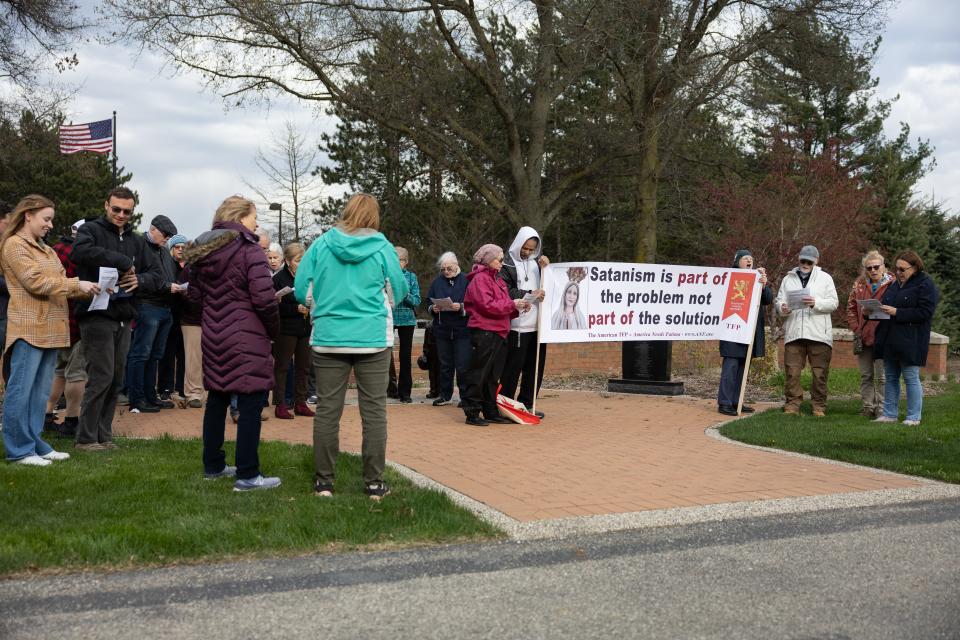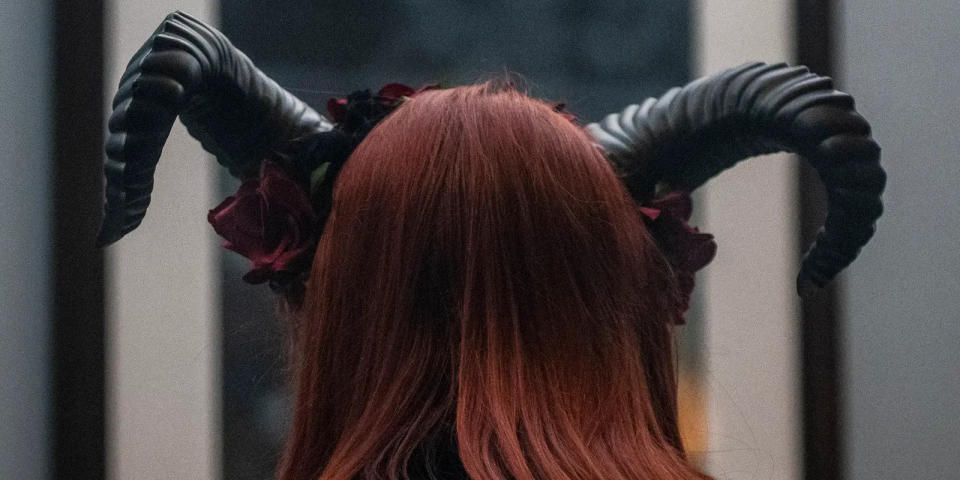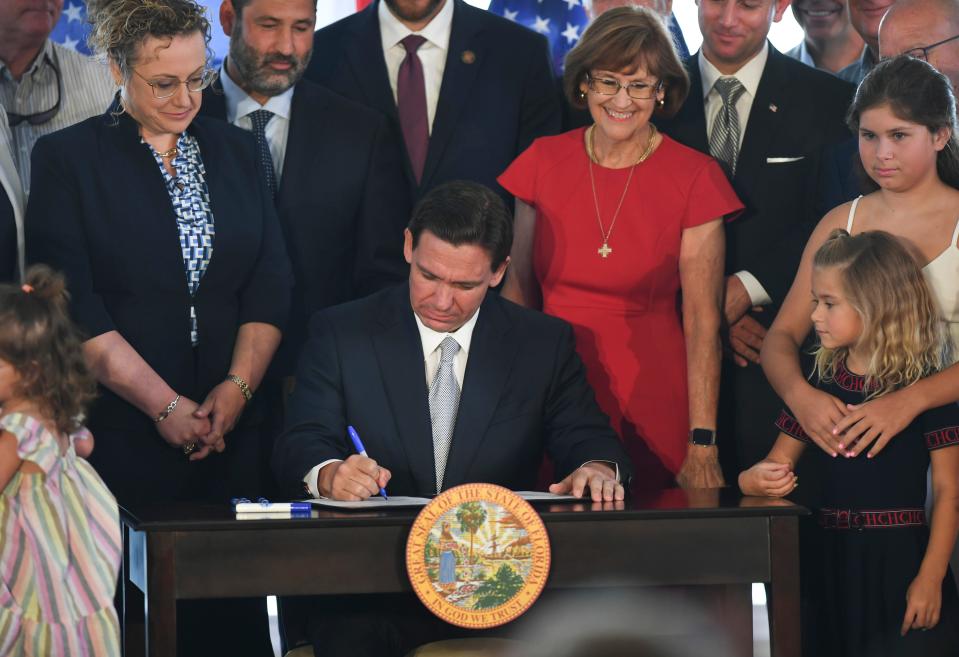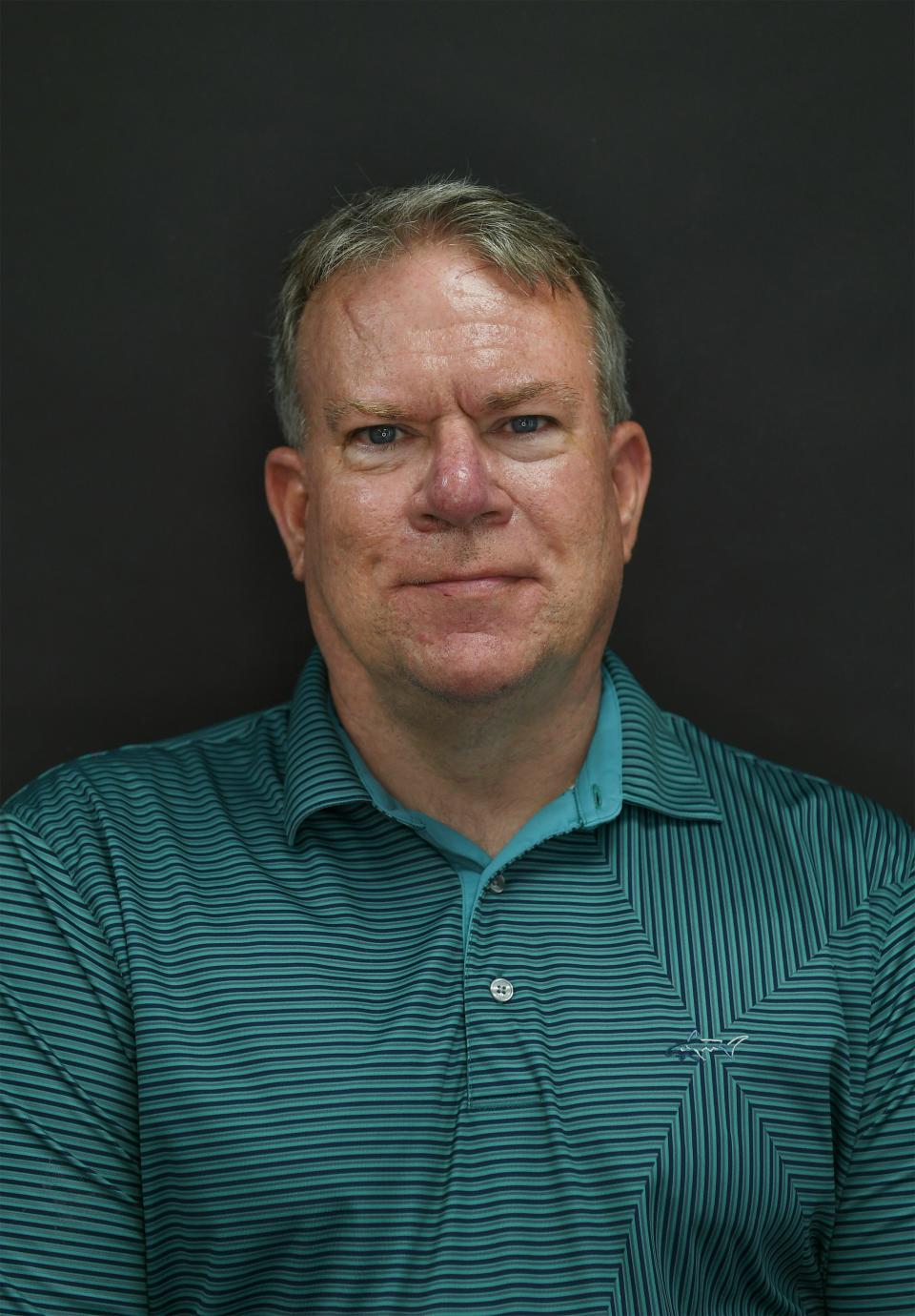Sen. Erin Grall's Florida school chaplains law is a recipe for trouble. And she knows it.
- Oops!Something went wrong.Please try again later.
It's been said the definition of insanity is doing the same thing over and over again, while expecting different results. But how should we describe a person who knows a planned action is likely to backfire, but goes ahead and does it, anyway?
State Sen. Erin Grall, a Vero Beach Republican, would seem to fit into this category with the "chaplains in schools" bill she sponsored, which Gov. Ron DeSantis signed into law last month.
The new law, scheduled to take effect July 1, lets public school districts throughout the state allow religious chaplains on campuses. Chaplains would volunteer to perform duties that would be decided by each district.
Among the first in line to offer its "chaplains" for service under the new law will apparently be the Satanic Temple, a group at least nominally committed to the cause of devil worship.
It's easy to see how the new school chaplain law could backfire

“Any opportunity that exists for ministers or chaplains in the public sector must not discriminate based on religious affiliation,” wrote The Satanic Temple’s director of ministry, who goes by Penemue Grigori, in an email as the bill was working its way through the legislative process. “Our ministers look forward to participating in opportunities to do good in the community, including the opportunities created by this bill, right alongside the clergy of other religions.”
At the bill signing, DeSantis responded to the temple's offer by essentially saying: "Nuh-uh.
"Some have said that if you do a school chaplain program, that somehow you're going to have Satanists running around in all our schools," he said at a news conference at a high school in Kissimmee, where he also signed a bill (HB 1317) giving more school access to “patriotic organizations. "We're not playing those games in Florida. That is not a religion. That is not qualifying to be able to participate in this."
However, even Grall, whose district includes Indian River County and most of St. Lucie County, seemed to acknowledge the Satanists have a point.
"I think that as soon as we get in the middle of defining what is religion and what is not, and whether or not someone can be available and be on a list, we start to run (into) constitutional problems,” she said before the legislation passed.
In other words, there's going to be trouble. Even if you share DeSantis' view the Satanists are not really a religious organization, but rather one that tries to highlight free speech issues, there are plenty of other groups that might want to bring their chaplains into schools.
Religious freedom creates a slippery slope

More than likely, the legislators who voted for Grall's bill assumed most of the chaplains would be from Christian denominations, with religious practices similar to their own.
But what about Jewish chaplains? Or Muslims? Or Hindus?
The three-page bill didn't attempt to define what constitutes a legitimate religion. That would have no doubt been a slippery slope to traverse.
The law allows students to interact with chaplains only if parental permission is granted. That seems like a reasonable restriction at first glance, but how are parents going to react if they learn the new law has opened the door for, say, a voodoo high priestess to set up shop at the local elementary school?
Are they going to be OK with that, or are they going to worry about their children possibly being proselytized by someone with a completely alien belief system? This has the makings of Drag Queens 2.0.
Students might be exposed to non-mainstream religions

I suspect some of the bill's supporters in the Legislature were thinking "unchurched" children might be exposed to religion by the chaplains, but they didn't stop to consider which religions those would be.
I'm talking about extreme examples, but even within the realm of Christianity, there are vast differences from denomination to denomination. For example, would parents from a nondenominational church want their kids ministered to by a Catholic priest?
It seems unlikely the courts would be willing to exclude any religion from having its chaplains participate under this new law.
There are other practical considerations, too.
It would be up to each district to define what services chaplains would offer, as well as the logistics of when and where. Would chaplains be roaming the hallways, or would they have regular office hours? If it's the latter, do they all share the same office space, or are schools going to have to make provisions to have potentially many chaplain offices in each of their schools?
Would the chaplains be required to undergo training or get any type of certification, or could virtually anyone professing to be of a particular faith take on the role of a chaplain?
School districts that choose to go down the rabbit hole of creating chaplain programs will have to spend time discussing and resolving these types of issues when they could be focused on improving classroom instruction.
A 'feel-good' bill with a large potential downside

I left messages with Grall's office several days ago, but didn't receive a response before my deadline for this column.
I actually have a pretty good idea of how this bill became law, though. On a superficial level, this seemed like a good way to offer up some "red meat" to constituents who share the same beliefs as the majority of legislators. Not enough of them thought about how the law might actually play out in the real world.
This could be why our country's founding fathers were so keen on the idea of keeping matters of church and state separate. To do otherwise invites a mess of Biblical proportions.
This column reflects the opinion of Blake Fontenay. Contact him via email at bfontenay@gannett.com or at 772-232-5424.
This article originally appeared on Treasure Coast Newspapers: Satanists in schools? Florida's new chaplains law is about to backfire

